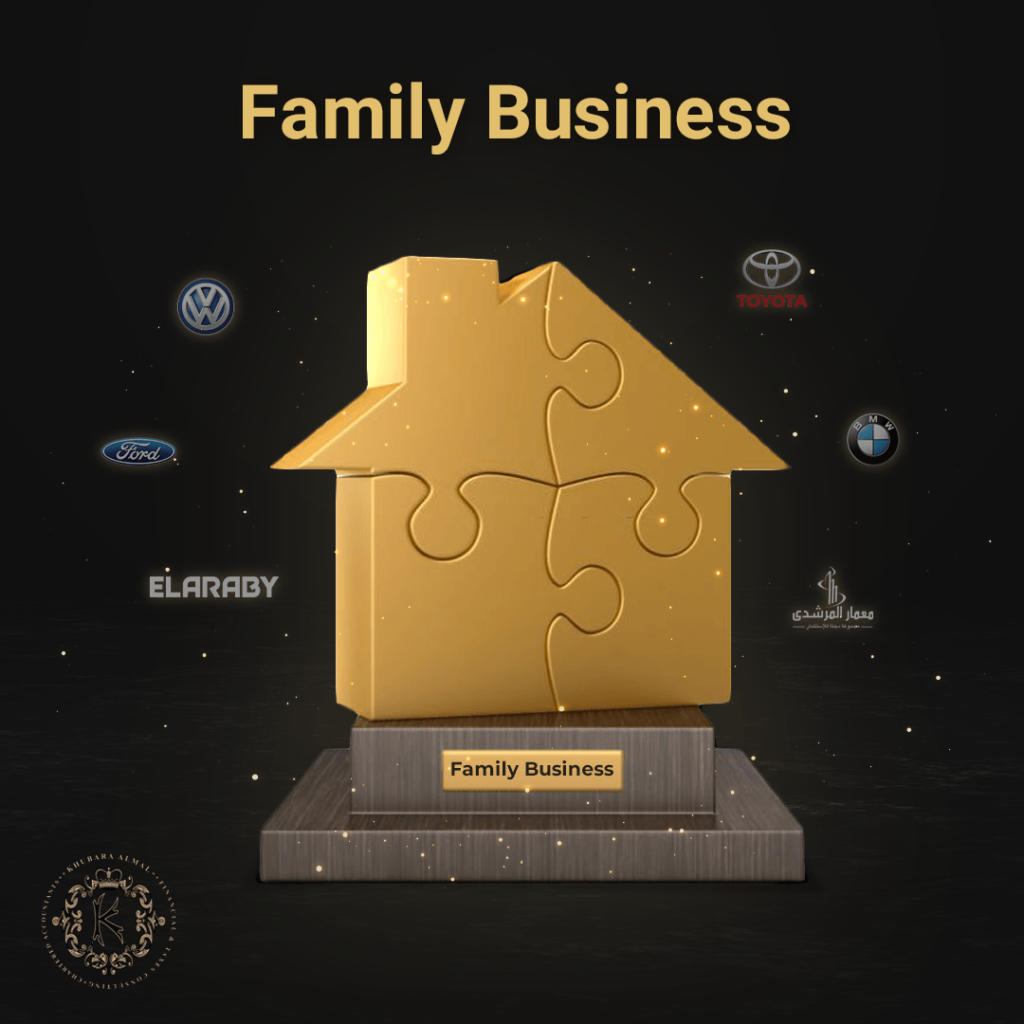In a world that is ruled by capitalism and dominated by large companies, a world that is full of thousands of different types of companies (partnership companies joint stock companies, holding companies, private companies, family companies, etc.…), a lot of people do not know a type of companies that has the greatest impact and the largest share of the world economy; we are talking about family companies.
Many believe that family companies are nothing but a local store that is run by a family. However, there are large numbers of the biggest and the most successful businesses in the world that are basically family businesses. Perhaps one of the most famous family corporations around the world is “Toyota” for manufacturing cars, their engines, and everything related to them.
Toyota was established by the great grandfather “Sakichi Toyoda” in Japan 1937. Sakichi established Toyota in collaboration with his son “Kiichiro Toyoda” who was so fascinated by the production method of the American Ford Motor Company that makes each worker responsible for only one piece of production. That is why the son wanted to make his family corporation a competitor to the Ford Company.
In 1933, a car department was opened in the factory of the father Sakichi. In less than a year the son succeeded in manufacturing a car engine by his hand, he called it “Kiichiro A”. Kiichiro A was the first attempt that led to his experimental cars that he kept creating in 1935 and 1936. Then, in 1937, which is considered the real date of founding the international Toyota Motor Corporation, he produced his first model. Afterwards, the Corporation’s productions of cars kept coming and new branches were opened in Brazil and all over the world.
In the beginning of the nineties the family corporation, under the management of one of its members “Tsuru Toyoda”, faced many crises as it was the worst time in the corporation’s history. In order to overcome these crises, the corporation’s leadership was handed over to “Hiroshi” to save it from drowning with his management experience, and this was the first time that someone outside of the family takes over its leadership.
However, as time goes by, the grandson “Akio Toyoda” wanted to regain control over his family business. Although he refused to become the president of the corporation, his goal was to keep its policy and management in the hand of the family. Hiroshi—the president of Toyoda at the time—refused to hand over the management to the family. He used to say: “nepotism will not be in the future of Toyoda, if we want it to have a future.”
The conflict between Toyoda family and Hiroshi continued until 1998 when the Sakura Bank, which Toyota relies on for its loans, collapsed. Here the Mitsui Bank intervened and merged with the Sakura Bank. It is necessary to point out that Mitsui Bank owners and Toyoda family had kinship relationships that opened the door for the grandson “Akio” to hold the position of vice president of Toyoda and after that he became the head of the corporation. Thus, the management of the corporation had returned to Toyoda family once again.
Toyoda knows the significance of understanding clients and providing products that they desire and that correspond to the nature of the place. This philosophy enables them to occupy a great position on the throne of automotive industry in the world.
Toyota’s story is one of the stories that prove that family companies are not just small companies without experience. It also devastates the theory saying that family companies cannot live more than 20 years, as Toyota remained for more than 50 years. Toyota family was able to keep its place and its ownership, and until now Akio Toyoda is still the president of the corporation.
There are many other companies that are of the largest and the most famous companies in the world and have been established on a family basis such as Volkswagen, Ford Motor Company, BMW, Elaraby Group, Memaar Al Morshedy, El Arosa Tea, and other Arab and international companies.
